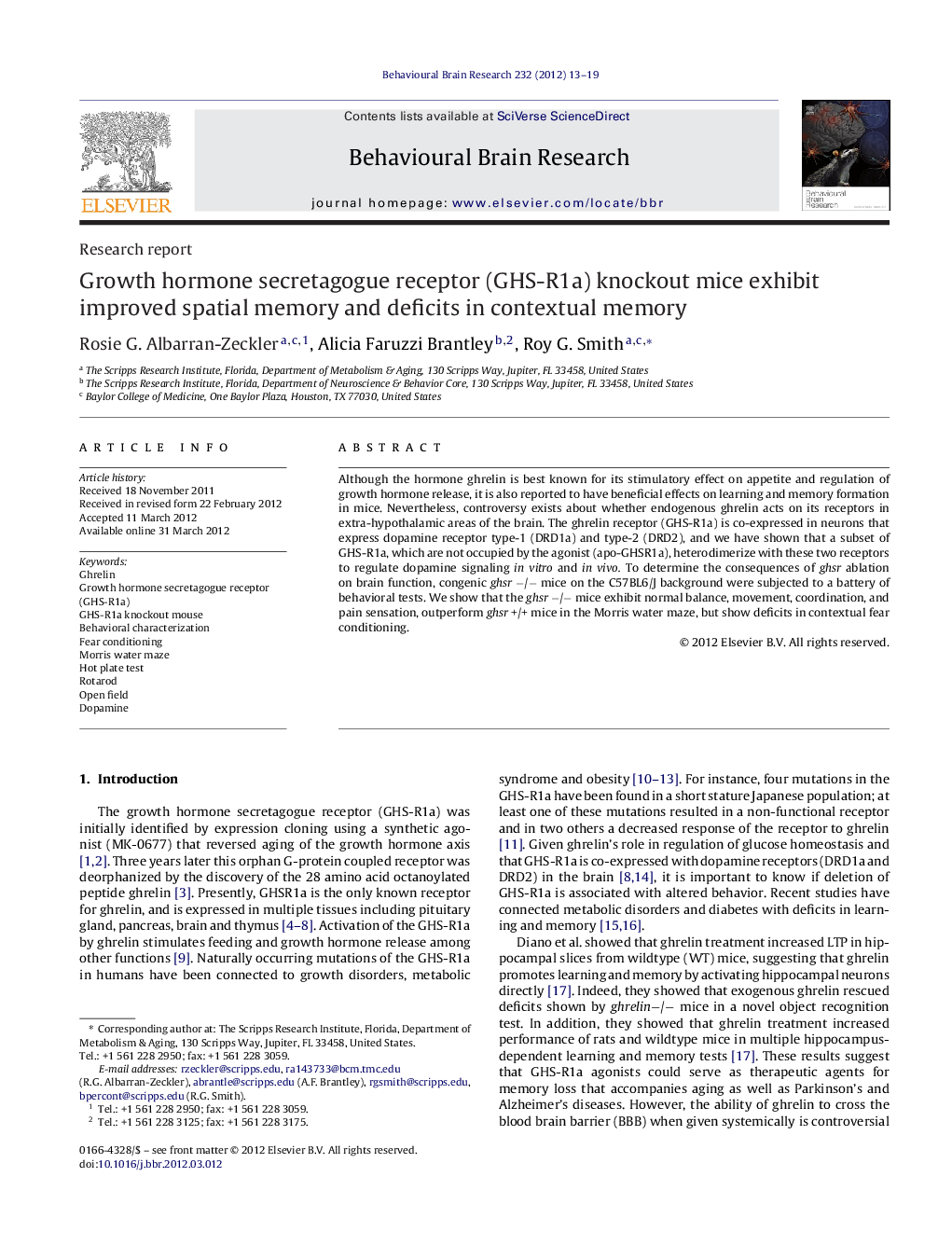| Article ID | Journal | Published Year | Pages | File Type |
|---|---|---|---|---|
| 4313091 | Behavioural Brain Research | 2012 | 7 Pages |
Although the hormone ghrelin is best known for its stimulatory effect on appetite and regulation of growth hormone release, it is also reported to have beneficial effects on learning and memory formation in mice. Nevertheless, controversy exists about whether endogenous ghrelin acts on its receptors in extra-hypothalamic areas of the brain. The ghrelin receptor (GHS-R1a) is co-expressed in neurons that express dopamine receptor type-1 (DRD1a) and type-2 (DRD2), and we have shown that a subset of GHS-R1a, which are not occupied by the agonist (apo-GHSR1a), heterodimerize with these two receptors to regulate dopamine signaling in vitro and in vivo. To determine the consequences of ghsr ablation on brain function, congenic ghsr −/− mice on the C57BL6/J background were subjected to a battery of behavioral tests. We show that the ghsr −/− mice exhibit normal balance, movement, coordination, and pain sensation, outperform ghsr +/+ mice in the Morris water maze, but show deficits in contextual fear conditioning.
► Ghsr −/− mice showed a deficit in fear conditioning 30 days after training vs wt. ► Ghsr −/− mice spent more time in target quadrant of the water maze vs wt. ► Ghsr −/− mice habituated faster to novel environments. ► Performance in the rotarod and hot plate test were not different between genotypes.
